Broadcasting’s Biggies
Even as TV took over the world, some people continued to make it big in good old-fashioned radio. We’ve collected a list of hit radio voices of the last 60 years, giants in the world of broadcasting.
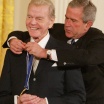
PAUL HARVEY began broadcasting his daily News and Comment in 1951 and over the next 50+ years became a staple of American radio. Harvey’s chatty reports, each about ten minutes in length, were syndicated to hundreds of stations nationwide, and Harvey was a pioneer in radio advertising — he pretty much invented the schtick of making a commercial sound like just another folksy anecdote. Harvey stayed strong even in old age, clocking in nearly every day until his death in 2009.
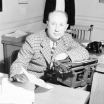
GORDON SINCLAIR was a Canadian counterpart to Paul Harvey. His midday personality sketches, titled Let’s Be Personal, were a fixture on Toronto station CFRB and around the country. He also wrote four books about his world travels, among them Cannibal Quest and Khyber Caravan. In 1973 he broadcast an essay praising the United States, which became widely known under the title of “The Americans.” Sinclair’s pro-U.S. essay was released as a hit single, read into the U.S. Congressional Record, and remains widely circulated on the Internet.
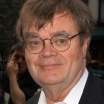
GARRISON KEILLOR began his live radio variety show A Prarie Home Companion in 1974 in Minneapolis, Minnesota. By 1980 Keillor and his gentle reports from the fictional town of Lake Wobegone had become a national phenomenon. Overwhelmed by the demands of a weekly live show, Keillor quit the business in 1987; but two years later he was back on the air, and A Prarie Home Companion continued into the 21st century.
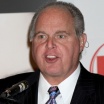
RUSH LIMBAUGH reached national heights in the 1990s as a fierce opponent of President Bill Clinton. Limbaugh’s daily four-hour talk show featured his famously brash, famously conservative monologues, mixed with calls from supporters known as “dittoheads.” Limbaugh’s cheerfully huge ego became a part of his shtick; he noted in a 2001 statement: “I have said that I shall not retire until all Americans agree with me. That is still operative.”
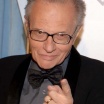
Although more people across the world know him for his CNN television show, LARRY KING has won just about every award there is for radio broadcasting. A native New Yorker, King got his start in Miami, Florida in the late 1950s. By the end of the 1960s he was a local media star. A few marriages and a bankruptcy or two later, King’s career waned in the 1970s, until offered a midnight-to-dawn syndicated show on radio in 1978. Then Ted Turner tapped King in 1985 for a live call-in interview show that would be broadcast internationally on CNN. Larry King Live began in 1985 and went on to become one of the network’s top shows. King continued his national radio show until 1994, and he was on TV until the end of 2010. He was famous for interviewing thousands of famous people, from Prince to Tony Blair, and for his topsy-turvy personal life (he has been married eight times to seven different women).
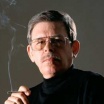
ART BELL was an underground radio sensation in the 1990s. His late-night talk show, originating in tiny Pahrump, Nevada, featured straight-faced discussions of UFOs, government conspiracies, ghosts and other tales of the paranormal. He made headlines in October of 1998 when he announced one night that a “terrible, threatening event” had happened and that he would be leaving the air forever. Two weeks later he was back on the air, refusing to discuss the incident. After a number or announced retirements (see our loop on Quitters), he said in July of 2007 he was leaving his show Coast to Coast to spend time with his family. He returned briefly in 2010, but has since been off the air.
DON IMUS was an enfant terrible of 1970s radio. His Imus in the Morning show on WNBC in New York featured his own special blend of insults, harsh humor and music, and paved the way for eventual “shock jock” successors like Howard Stern. Imus was fired in 1977 after drugs and alcohol got the best of him, but in the 1990s he resurfaced in New York with a top-rated morning show featuring political talk and his own trademark rants. Then he was fired one more time in 2007, after a crude comment about the Rutgers University women’s basketball team set off a firestorm of angry complaints. Once the dust settled, Imus was on the air, with different broadcasters.
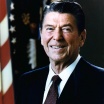
Honorable Mention: RONALD REAGAN. Reagan isn’t best known for his work in radio, but radio is where he got his start. His first job after college was as a sports announcer at station WOC in Davenport, Iowa. (Later he moved up to WHO in Des Moines.) From there it was on to Hollywood, to the governorship of California, and finally to his election as the 40th president of the United States.
